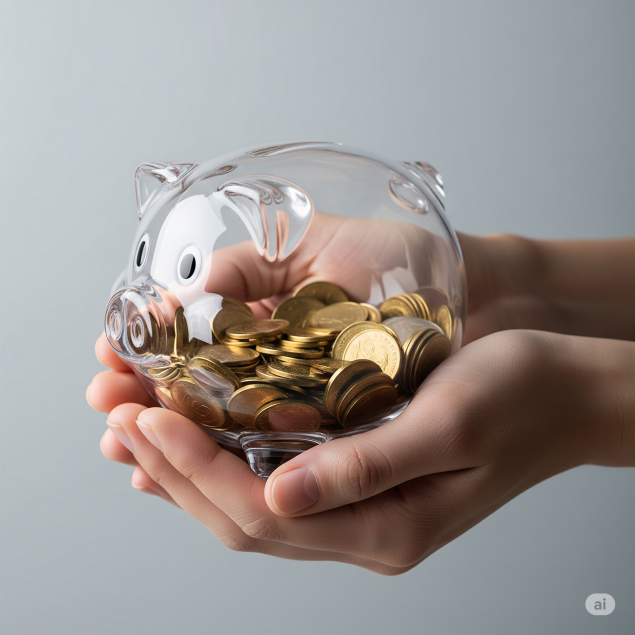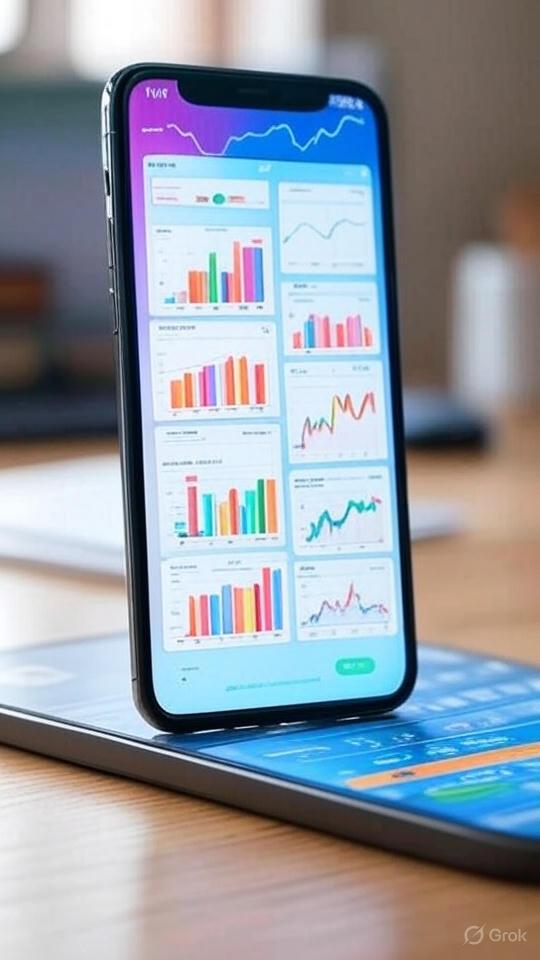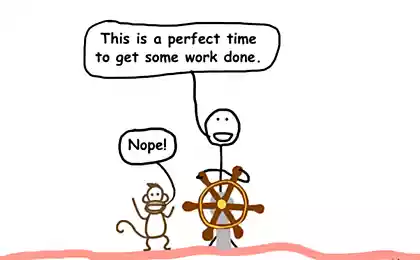87
15 Financial Improvements You Can Make Today
You don’t have to change your whole life to improve your relationship with money—you just need to introduce a few little habits to get things done.

Imagine: you wake up in the morning and instead of the usual fear of the next bill you feel confident. Your money no longer disappears mysteriously, but works for your purposes. Does that sound fantastic? No way! Financial well-being is not the innate talent of the chosen, but the result of conscious actions that everyone can master.
Many people live in financial chaos, not realizing that small changes in everyday habits can dramatically transform their relationship with money. Research shows that about 78 percent of people live paycheck to paycheck, but that's not a sentence - it's just the lack of the right system.
1 Do financial detective work
The first step to financial enlightenment is to look honestly at your spending. You seem to be in control? Sit down and study the last three months' bill statements. Prepare for discoveries: the subscription to a streaming service you haven’t used in six months, monthly purchases in apps you don’t even remember, spontaneous purchases at gas stations.
Write down every expense throughout the week, from coffee to parking. You’d be surprised how much money flows through seemingly insignificant purchases. It’s like finding a leak in a pipe – it seems like a trifle at first, but a decent amount runs in a year.
2 Implement the “important first” principle
You got your paycheck? Great! But instead of happy shopping, make a smart move: cover all basic needs at once. Rent, utilities, groceries, transportation – all this must be paid for first.
Psychologists have found that people who first cover basic expenses experience less financial stress and make more rational decisions about the remaining funds.
3 Reprogram Your Financial Thinking
Stop saying, “I’m not good at money.” Every time you say that, your brain is instructed to act accordingly. Replace that phrase with, “I study finance and get better at it.” Sounds like self-deception? On the contrary, it works on a neural level.

4 Your financial alphabet
You don't have to become an economist, but understanding basic principles is a necessity. How do interest on loans and deposits work? What is inflation and why does it eat up your savings? How to start investing without risking everything?
Minimum knowledge set:
- Compound interest and its magic
- Differences between Assets and Liabilities
- Basics of taxation
- Principles of diversification
- The concept of risk and return
5 Copy wisely, not just in case
Purposeless accumulation is a direct path to disappointment. Money that simply lies in the account loses purchasing power due to inflation. Each piggy bank should have a clear goal: emergency fund, vacation, down payment for housing, education.
Visualize your goals. You want a holiday in Thailand? Put a picture of the beach on the fridge. Dreaming of a new car? Keep the image on your phone. When the goal is concrete and visible, saving becomes not a sacrifice, but an investment in the dream.
6 Make Financial Education a Habit
Financial literacy requires constant updates, like an antivirus on a computer. The world of money is changing rapidly: new tools are emerging, laws are changing, and opportunities are emerging. Subscribe to quality financial resources, listen to podcasts on the road, read the books of successful investors.
7 The art of living by means
This does not mean turning into a miser who refuses all pleasures. It's about conscious consumption. Analyze every major purchase: Do you really need it? Is there a cheaper alternative with the same functionality?
Rule 24 hours: before any purchase is more than a certain amount (set the limit yourself) wait a day. It is amazing how often the desire to buy something disappears after a short pause.
8 Surround yourself with financially literate people
Your financial environment influences your decisions more than you think. If your friends are constantly urging you to “pamper yourself” and “live one day”, review your social circle. This doesn’t mean cutting off all ties, but it’s worth finding people who share your financial goals.
9 Create and Keep a Budget
A budget is not a limit but a plan of action. It shows where the money is going and helps to direct it where it is needed. The simplest and most effective model is the 50-30-20 rule.
- 50% - necessary expenses (housing, food, transportation)
- 30% - Desire and entertainment
- 20% - savings and investments
10 Plan your retirement for young people
Does retirement seem far away? Time is your main ally in savings. Due to compound interest, even small amounts set aside in youth turn into serious capital for retirement. Don’t rely only on the state – create your own retirement cushion.
If you start saving 5,000 rubles a month from 25 years at 7% per annum, by 65 years will accumulate about 13 million rubles. If you start at 35, you only get $6 million. The difference of 10 years is worth 7 million!
11 Tie money to dreams
Abstract "savings" do not motivate. Specific goals are motivating. Do you want to buy a house? Hang his picture in a prominent place. Dreaming of traveling? Create a wish board with pictures of the places you want to visit.

12 Distinguish between price and value
Expensive does not always mean quality, and cheap does not always mean bad. Learn to analyze the ratio of price and quality. Some things are worth buying expensive (footwear, mattress, appliances), others can be taken cheaper without losing functionality.
13 Don't chase every discount
Time is money, too. If you spend half a day looking for a discount of 200 rubles, think: is your time worth the money? Sometimes it is better to buy a little more expensive, but save time and nerves.
14 Use technology to control your finances
Modern applications make money management a simple task. Automatic tracking of spending, reminders of payments, analysis of financial behavior – all this helps to keep finances under control without unnecessary effort.
Useful functions of financial applications:
- Categorization of expenditure
- Notice of excess budget
- Tracking savings objectives
- Analysis of financial habits
- Automatic transfers to the treasury
15 Find a balance between savings and pleasure
Constant restrictions lead to financial breakdowns. If you refuse yourself all the time, sooner or later there will be an “explosion” and you will spend everything you have accumulated at once. Planning for small joys is an investment in long-term financial discipline.
The main secret of financial success: Start small, but start today. Every day you put off making changes, you lose the opportunity to improve your life. Financial well-being is not a luxury, but a necessity in today’s world.
Remember, money is energy that must flow and work for your purpose. Don't let them stagnate or escape uncontrollably. Every spending decision is a choice between present desires and future opportunities. Choose wisely and your financial life will change for the better.
The study found that people who regularly monitor their finances spend an average of 23% less and accumulate 40% more money than those who don't.
Glossary
Inflation
The process of rising prices for goods and services, as a result of which the purchasing power of money decreases.
Compound interest
The accrual of interest not only on the original amount, but also on the interest already accumulated, which leads to an exponential increase in capital.
Diversification
Distribution of investments between different assets to reduce risks.
Assets
Property that generates income or has value (real estate, stocks, bonds).
liabilities
Obligations that require expenses (loans, loans, regular payments).
Liquidity
The ability to quickly convert assets into money without significant loss of value.
Emergency fund
Reserve money for 3-6 months of expenses to cover unforeseen situations.
Risk management
Risk management system aimed at minimizing potential financial losses.























